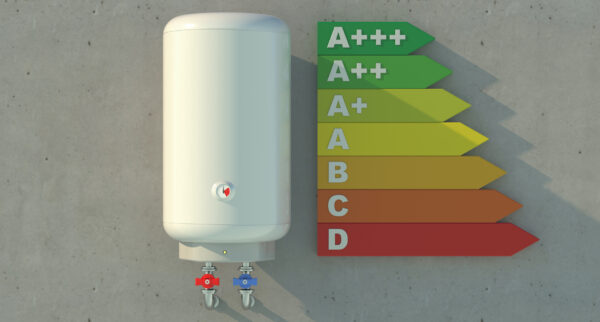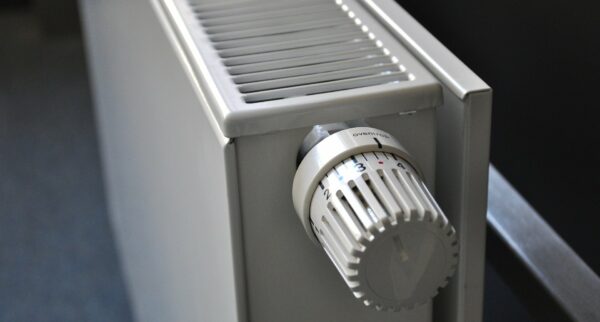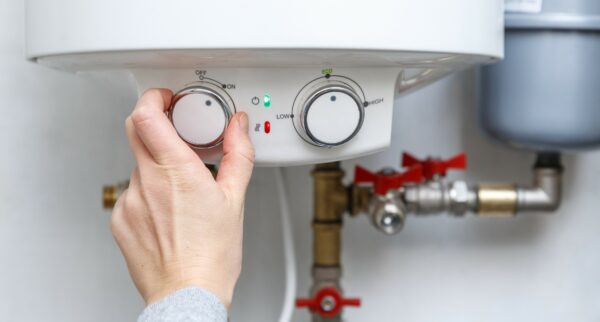Call us today 0207 32 32 999
Written By: JustBoilers.com Experts | Last Updated: January 2022
If your hot water is flowing more slowly than normal, or not at all, then your boiler probably isn’t performing properly. This is often down to the boiler losing pressure, or it could mean there’s a leak somewhere in the network of pipes and radiators. The exact cause is often difficult to determine at first glance, but there are a few checks that you can do yourself that may help identify the issue.
In this article, we’ll walk you through the system and show you how it works. Then, you’ll be able to check a few possible reasons for your boiler losing pressure. If you manage to spot a potential issue, you may even be able to give your engineer all the information they need over the phone, so when they arrive they’ll know exactly what they’re dealing with. That way, the boiler can be fixed quickly and efficiently, with minimal interruption to you.
Table of Contents
ToggleHow to Check You Have a Boiler Losing Pressure Slowly
Locate the pressure gauge. It’s usually on the front of your boiler in the drying cupboard. The read-out should be in the region of 2 bars with the needle approximately vertical, if there is an analogue dial. If the reading is under 1.5, then your boiler is losing pressure. The next job is to find out why.
Possibility 1: Loss of Pressure Due to a Leak
Look around the house for where hot water pipes appear through walls, and connect to radiators, taps, and the boiler itself. Check for damp spots on the wall and floor at these various points. Even a tiny leak can gradually bring boiler pressure down.
Never attempt to open your boiler to check for leaks. Only a Gas Safe engineer should do this because of the dangers of boiling water, pressure and gas.
Possibility 2: Did You Bleed Air from the Radiators Recently?
If you had this done, or did it yourself, then this may be the reason for the boiler losing pressure. Do nothing as long as you have some hot water. The system should correct itself in a day or two.
Possibility 3: You Have Lost Water from the System
Return to your boiler if you are still mystified. You may see one of several things depending on the age of your house:
- If you have a modern, digital gage, you might find the readout flashing if the pressure is too low (or high)
- If you have a ‘clock dial’ type, then the high and low zones should be red. If there is a red needle, then this was the reading when new.
If you find your particular gauge reading below one bar of pressure, then you may have lost water from the system. This may be something you can fix yourself.
A warning about high pressure:
If you find your boiler reading above 2.75 bars while investigating a boiler losing pressure, this indicates you may have too much water instead. The standard industry fix is to bleed a radiator down until the pressure returns to within the normal range. However, this can be dangerous because the water is hot and will be under pressure. We recommend you ask a Gas Safe engineer to stop by, as the fault could be inside the boiler itself.
Draining down a radiator to removing excess water from the system may take a while because the pipes are narrow. Make sure you have sufficient containers and cloths to catch the water, and mop up as you go along.
Possibility 4: You Could Replace the Lost Water in the Boiler
Gas fitters use ‘filling loops’ when they install boilers, so they can add water to the right level. You may be able to repressurise your appliance yourself. However, this is a tricky task to explain as there is no standard design. So think carefully before you attempt this, especially if you have any difficulty accessing a boiler losing pressure. The job can be dangerous, and you may cause damage if you’re not sure of what you’re doing. If in doubt, always give us a call!
- Step 1: Look for instructions on the back of the boiler control panel. PLEASE DO NOT attempt this if you need tools to get to it
- Step 2: Note your boiler’s make, model, serial number, and any other distinguishing marks that could help you identify it from a photo
- Step 3: Visit your boiler manufacturer’s website and search through their manuals, blogs, and technical articles for tips and ideas.
Before You Start Some Info on Boiler Filling Loops
Modern boilers and hot water accessories are closed systems. Therefore they have no reserve supplies of water. This is deliberate, to reduce the possibility of flooding if a top-up system fails.
However, plumbers do leave the connections in place they originally used to fill the new boiler. Therefore it follows we can use these to top up the boiler by using them again. The trick is to reconnect them temporarily using a filling loop.
Filling loops have dual taps that allow new water to flow from the source into the boiler. Make sure you have an assistant to help you with this, and practice switching the boiler off and on a few times.
Ready, Steady, Go Let’s Re-Pressurise the Boiler!
- Turn off the main boiler switch and allow it to cool down. Find another chore to do while you wait
- Find the filling loop and learn how to work the taps. Return them to their original position
- Attach both ends of the filling loop securely (best to make double-sure about this)
- Open the two taps slowly until fully open. You will hear the sound of fresh water entering the system
- Watch the pressure gauge continually until it reaches 1.5 bars. The close both taps, one after the other
- Remove the filling loop (mind the water spills) and store it somewhere you know you’ll find it.
- Turn the boiler back on again. You may need to use the reset button to get it restarted.
Why You Should Always Use a Gas Safe Engineer
If you were successful in solving the issue yourself, and you no longer have a boiler losing pressure well done! However, if you continue having problems it’s always worth calling a professional for advice. The root cause may be deep inside the boiler itself, in which case you’d need to find an experienced Gas Safe engineer.
It’s important to use a specialist provider unless you are confident about what you are doing, and have the plumbing experience. We can’t promise nothing will ever go wrong, and there are differences between boiler brands to consider too. Contact us to book a visit from an experienced engineer and we’ll solve your boiler problems whether your boiler is losing pressure slowly or even if your boiler is losing pressure overnight.





